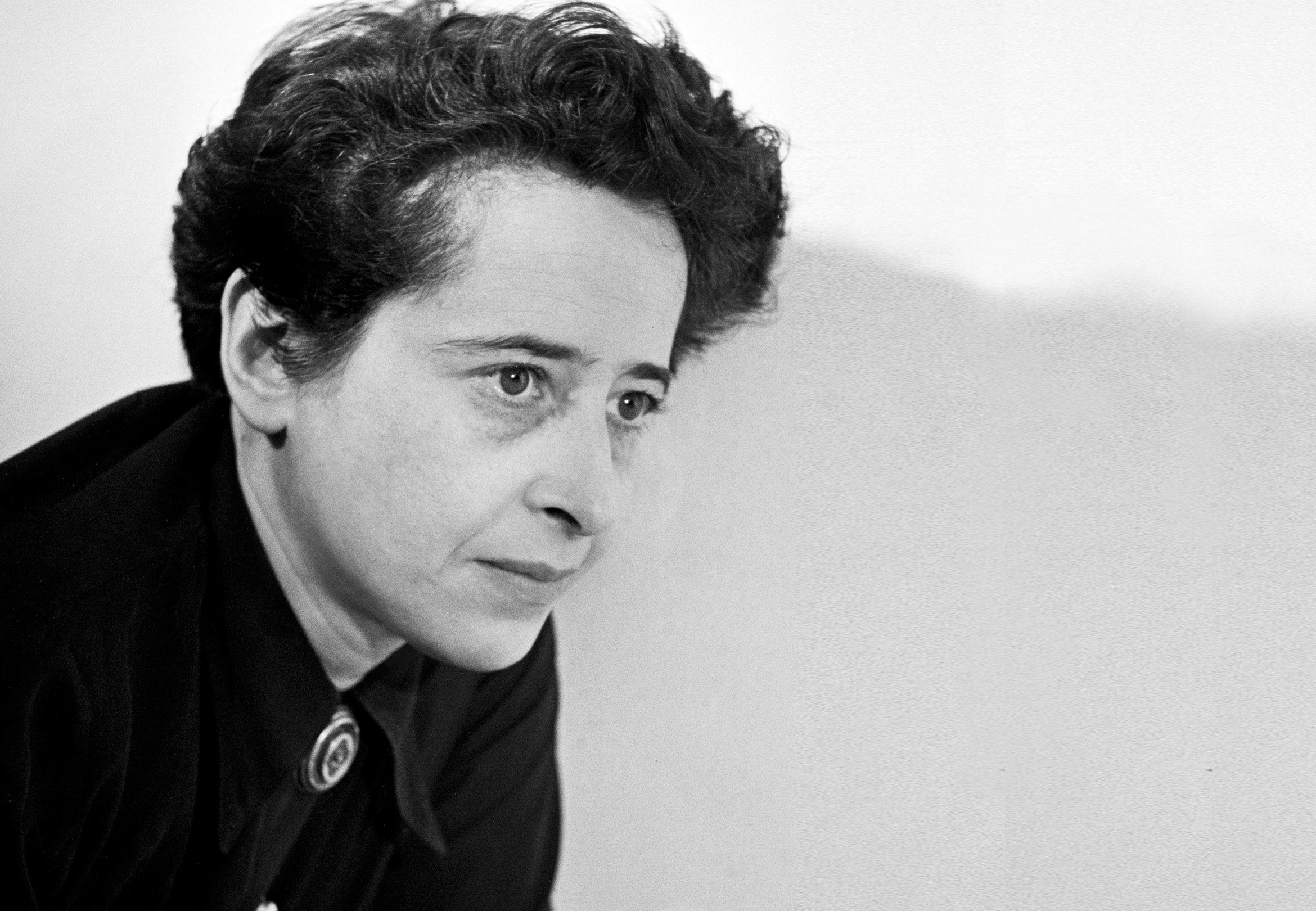Hannah Arendt: The Philosopher Who Stood Up to Totalitarianism
Posted by Pete on Oct 14th 2019
After escaping from the worst that humanity could offer, Hannah Arendt confronted evil head on.
Plenty of philosophers do their best to detach themselves from all things 'worldly', in order to think on a supposedly higher plane.
Not Hannah Arendt.
Born today in 1906, Arendt's experiences ran free across the fields of her political and philosophical thought — which spanned everything from revolution to the nature of evil.

Hannah Arendt: philosopher and fighter of injustice
Growing up Jewish in 20th century Germany
Raised in a progressive Jewish family in Hanover, Germany, Arendt's parents were both socialists in the country’s fast-growing Social Democratic Party
Having moved west from Russia decades earlier, the Arendt family considered themselves very much German, but even before the 1910s were done, Hannah sensed that there were plenty of reactionary people in the country for whom Jewishness and Germanness could never be compatible.
She felt an emotional closeness to Rahel Varnhagen von Ense (1771-1833), a Prussian socialite whose many attempts to assimilate in Germany had been rebuffed by anti-Semites a century before Arendt's time. She later described Varnhagen as “my very closest woman friend, unfortunately dead a hundred years now.”
Things didn’t get any better for German Jews like Arendt as the early twentieth century unravelled.
The rise of Hitler in the 1930s drove her first husband, Gunther Stern, to flee to Paris due both to his Jewishness and his ties to the Communist Party.

'First they came for the communists': Martin Niemoller's famous warning is as relevant as ever
On violence: the growth of Nazi totalitarianism
Arendt stayed behind in Germany, using her apartment in Berlin as a way station for fugitives on the run from Nazism — an echo of the tactics pioneered in the American anti-slavery movement by the likes of Harriet Tubman and Frederick Douglass .
But Arendt’s place in her homeland was growing more fragile by the day. As a vocal, Jewish critic of Nazism it was only a matter of time before Hitler’s goons came for her.
Sure enough, she was soon arrested by the Gestapo for researching anti-Semitism in Germany.
Following a stay in prison, Arendt and her family managed to escape Germany to France, only to be followed by Nazi bombers and panzer divisions when they marched west in 1940.
They would sneak across the Spanish border and eventually to Portugal, catching a boat to the US in May 1941 — where Arendt would remain until her death in 1975.
This dramatic life etched itself onto Hannah’s now world-famous political and philosophical thought.
The Philosophy of Hannah Arendt
Her first major book, The Origins of Totalitarianism (1951), explored how, rather than just political enemies, totalitarian regimes vilified entire population groups — as Hitler had targeted Arendt and her fellow Jews.
She later devoted a great deal of criticism to the failure of human rights law to effectively protect refugees, a story whose personal consequences Arendt knew all too well.

Click to see our design inspired by the courage and bravery of refugees, past and present
In 1961, Arendt traveled to Israel to cover the trial of the infamous Nazi mass murderer, Adolf Eichmann, for the New Yorker.
Eichmann ( captured in Argentina) had been a leading architect of the institutionalization of anti-Semitism in Hitler’s Germany which had driven Arendt into exile.
She now came to study Eichmann as he was brought to justice in Jerusalem — and through him, the nature of evil itself.
Among the many conclusions which Arendt famously documented in Eichmann in Jerusalem: A Report on The Banality of Evil, she observed:
“Going along with the rest and wanting to say ‘we’ were quite enough to make the greatest of all crimes possible.”
This truth endures — as does Arendt's status alongside the likes of Rosa Luxemburg and Sigmund Bauman as one of the great 20th century Jewish thinkers to meet the challenge of oppression head-on.
All of us today who continue to contest evil stand on her shoulders.
Read more stories about literary and philosophical radicals on our blog
